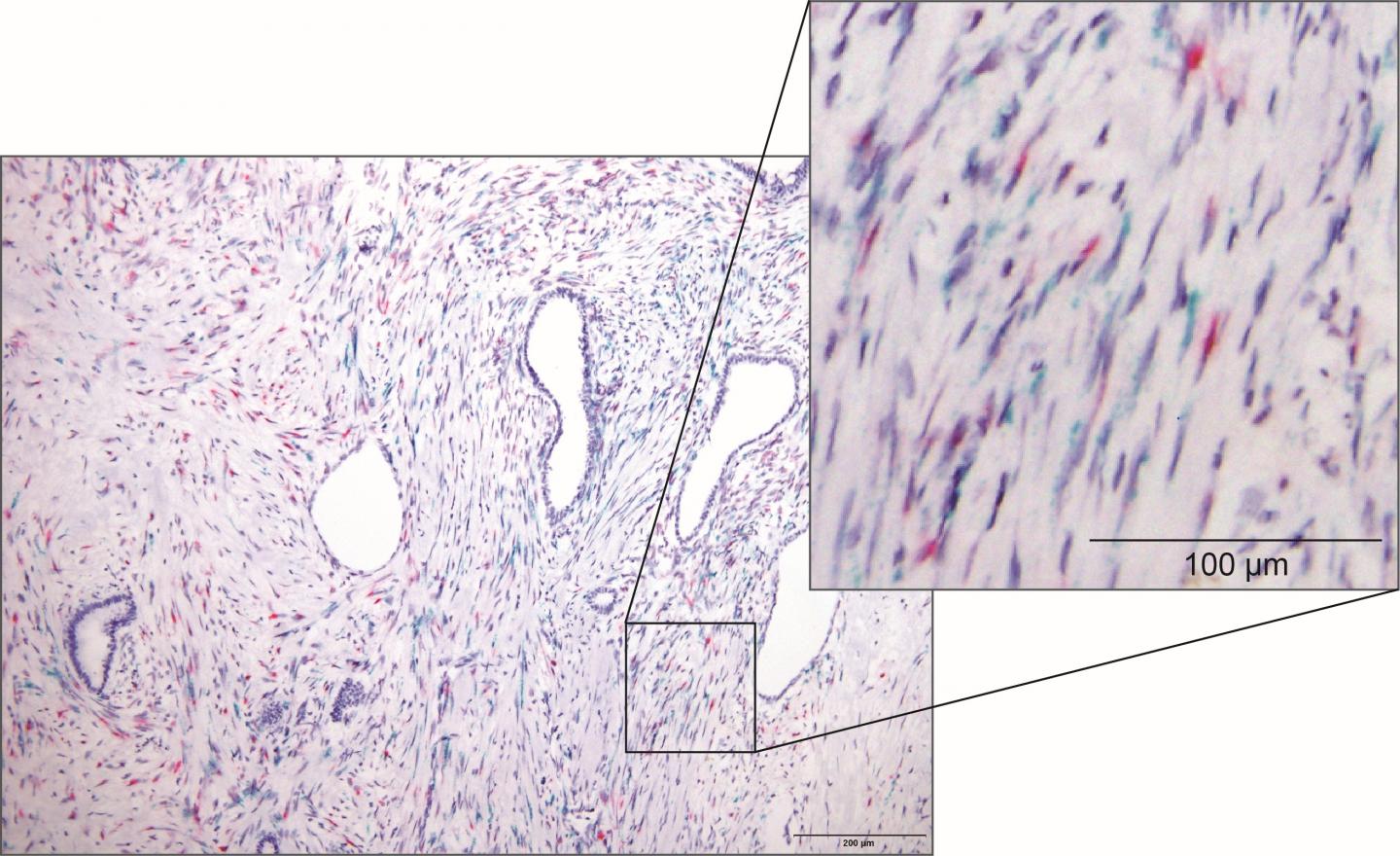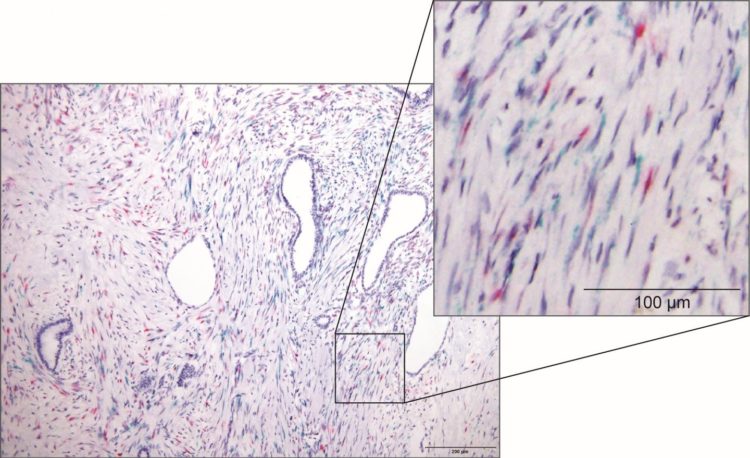
Credit: Yasuyuki Mizutani
A research team led by Nagoya University has revealed that cells containing a protein called Meflin have a role in restraining the progression of pancreatic cancer, a type of cancer that is hard to treat with traditional anti-cancer drugs. The team has also shown that cancer progression can be limited by artificially increasing the amount of this protein in the cells. These findings could lead to the development of new therapies against pancreatic cancer. This study was published online in Cancer Research on Aug 22, 2019.
Cancer cells are surrounded by stromal cells, which include fibroblasts. Fibroblasts are considered to divide into at least two populations: those promoting cancer progression and those restraining it. However, the nature of cancer-restraining fibroblasts remained unknown due to the lack of specific markers for this population, while various markers of cancer-promoting fibroblasts have been identified.
To identify a marker of the cancer-restraining fibroblasts, a team led by Professor Masahide Takahashi and Associate Professor Atsushi Enomoto at the Department of Pathology in the Graduate School of Medicine, Nagoya University, conducted studies on fibroblasts, which exist in large numbers around pancreatic cancer cells, and identified the presence of a protein called Meflin. The team focused on this protein and revealed, based on studies of tissues from 71 pancreatic cancer patients, that patients who had a larger amount of Meflin experienced slower cancer progression. The team’s experiments using mice also showed that pancreatic cancer in mice that had no Meflin progressed faster. Thus, they concluded that Meflin is a marker of cancer-restraining fibroblasts.
The study also showed that administration of vitamin D to fibroblasts helped to increase the amount of Meflin in the cells and that the progression of pancreatic cancer could be restrained by artificially increasing this protein. Professor Takahashi says, “We hope to develop drugs that increase Meflin so as to create new therapies against pancreatic cancer, a type of cancer that is hard to treat with traditional anti-cancer drugs.”
###
The article, “Meflin-positive cancer-associated fibroblasts inhibit pancreatic carcinogenesis,” was published in Cancer Research at DOI:10.1158/0008-5472.CAN-19-0454.
Authors: Yasuyuki Mizutani, Hiroki Kobayashi, Tadashi Iida, Naoya Asai, Atsushi Masamune, Akitoshi Hara, Nobutoshi Esaki, Kaori Ushida, Shinji Mii, Yukihiro Shiraki, Kenju Ando, Liang Weng, Seiichiro Ishihara, Suzanne M. Ponik, Matthew W. Conklin, Hisashi Haga, Arata Nagasaka, Takaki Miyata, Makoto Matsuyama, Tomoe Kobayashi, Tsutomu Fujii, Suguru Yamada, Junpei Yamaguchi, Tongtong Wang, Susan L. Woods, Daniel L. Worthley, Teppei Shimamura, Mitsuhiro Fujishiro, Yoshiki Hirooka, Atsushi Enomoto, & Masahide Takahashi
Researcher contact details:
Professor Atsushi Enomoto
Department of Pathology, Graduate School of Medicine, Nagoya University
Email: [email protected]
Media Contact
Atsushi Enomoto
[email protected]
Related Journal Article
http://dx.





